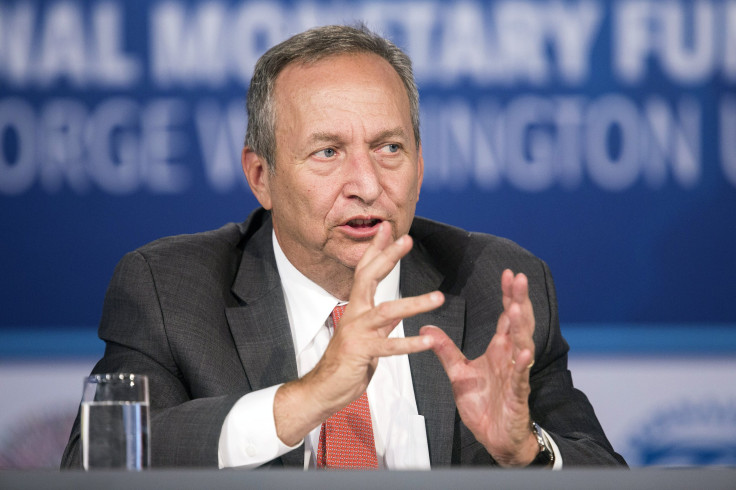Larry Summers Says Falling Oil Prices Make An 'Overwhelming' Case For A US Tax On Carbon Emissions

Steeply declining oil prices are an “overwhelming” reason why the United States should impose a tax on carbon dioxide emissions, former U.S. Treasury Secretary Larry Summers says. With crude and gasoline prices reaching five-year lows in recent months, the climate change policy would keep Americans from guzzling more cheap fuel and boosting the nation’s global warming pollution.
“While the recent decline in energy prices is a good thing in that it has, on balance, raised the incomes of Americans, it does exacerbate the problem of energy overuse,” Summers wrote in a Financial Times op-ed published Sunday. “The benefit of imposing carbon taxes is therefore enhanced.”
Two major oil benchmarks, Brent and U.S. West Texas Intermediate, have lost more than half their value since the middle of 2014, Reuters reported. Brent crude slipped to as low as $55.25 a barrel Monday, while U.S. oil dropped to $51.40 a barrel -- the lowest levels for both benchmarks since May 2009. At the same time, U.S. gasoline is down by more than $1 a gallon on average compared to last year, with prices reaching about $2.29 for the last week of December, according to federal energy data.
In his op-ed, Summers explained that a carbon tax would make it more expensive for companies and consumers to extract and burn fossil fuels such as oil, natural gas and coal. The idea is to make fossil fuel users pay for the pollution and environmental damage that’s created by driving cars, producing electricity, heating homes, running factories and other industrial uses. Raising the expense of conventional fuels in turn makes cleaner alternatives such as solar and wind power and battery-powered cars more attractive to consumers.
U.S. policymakers long resisted legislative attempts to institute a carbon tax or other climate change policies. Opponents argue that a tax would hurt low-income families and raise the cost of doing business in the United States, making American companies less competitive than their untaxed overseas rivals. Summers argued that falling energy prices would help lessen the sting of a carbon tax, boosting the rationale for new climate rules.
Middle- and low-income consumers “have received a windfall from the drop in energy prices, so it would be possible to impose substantial carbon taxes without them being burdened relative to where prices stood six months ago,” Summers said. For instance, a carbon tax of $25 per metric ton of carbon dioxide would lift gas prices by just 25 cents over the next decade, he said.
Lawmakers in the 2013-2014 Congress issued five proposals for a carbon tax, also called a “carbon pollution fee,” none of which have been successful so far. The most recent effort, proposed in November by Sen. Sheldon Whitehouse, D-R.I., would place a $42-per-ton fee on emissions from domestically produced or imported coal, natural gas and oil.
The prospects of such a measure getting passed are grim now that Republicans control both chambers of Congress. Summers urged conservatives to back the policy, arguing that those “who believe in the power of markets should favor carbon taxes on market principles,” he said. “Now is the time.”
© Copyright IBTimes 2025. All rights reserved.




















